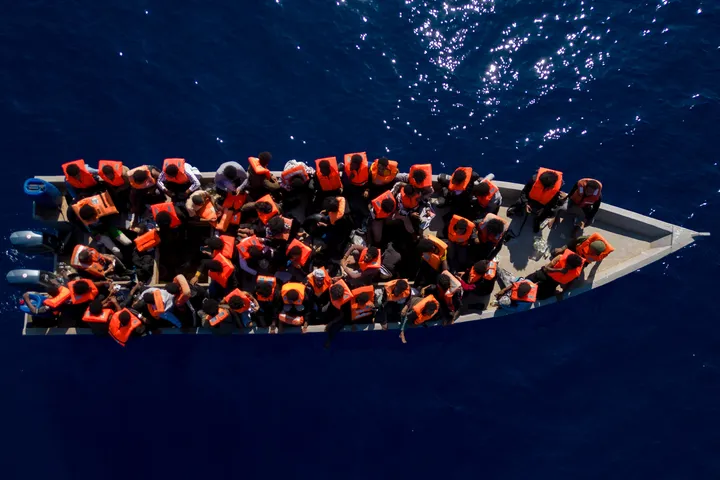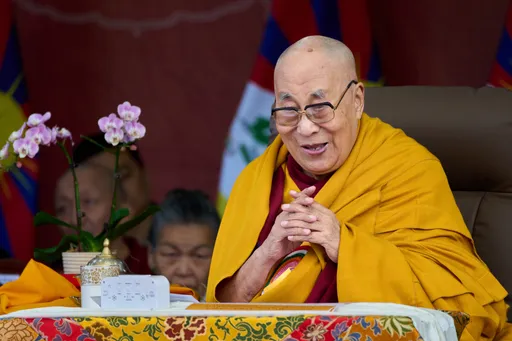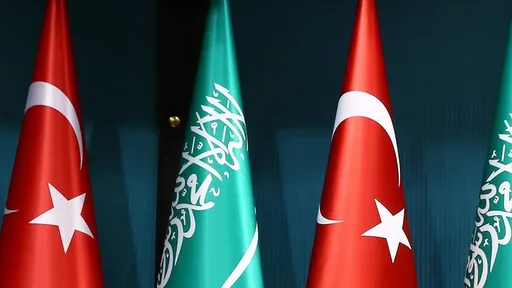Ramadan is upon us. For hundreds of millions of Muslims around the world, that means no food, drink, or cigarettes, during day time for an entire lunar month.
But besides all the abstaining, it’s also a period of intense spirituality for the faithful, many Muslims will follow their evening meals with a special night time prayer, known as tarawi, and during the last ten days of the month, considered the most auspicious, some will spend their days and nights in constant worship in mosques, a tradition known as itikaf.
So confused by the whole thing? We have you covered with our list of the most frequently asked questions regarding the Muslim holy month.
What is Ramadan?
Ramadan is the ninth month of the Islamic Hijri calendar. Like the Western Gregorian calendar, the Hijri calendar has 12 months, but unlike it, those months follow the lunar cycle, i.e; a new month begins with each new moon.
The term ‘Hijri’ stems from the Arabic word for ‘migration’ and represents the Prophet Muhammad’s move from the city of Mecca to the city of Medina.
When does Ramadan start?
The current Islamic year is 1440 and Ramadan in 2019 is expected to start on the evening of Monday May 6, subject to the sighting of the new moon.
Because the lunar year is shorter than the solar year, Ramadan starts earlier each Western Gregorian year. In 2020, it will start on roughly April 24, and in 2021, it will start on around April 13.
Why do Muslims tend to start the month on different days?
This is where we get into nitty gritty theological interpretations but we’ll try to keep it simple.
When Muslims first marked Ramadan, they inhabited the same general location and relied on the same method to determine when it started, namely using their own eyes.
Fast forward to today, Muslims live across the globe, and have access to advanced technology such as telescopes, as well as advances in Mathematical calculations.
So Muslims have disagreements, on whether a moon sighting in one place can be applicable to another place very far away, whether aids such as telescopes can be used to sight the new moon, whether definite astronomical calculations should take precedence over sightings by eye.
The list goes on, and the end result is Muslims starting the same events on different days.
What does the word ‘Ramadan’ actually mean?
According to Muslim Matters, the word Ramadan stems from the ancient Arabic word ‘Ramdha’, which means the intense heat of the Sun.
The article says that the months were named according to the seasons in which they fell, so Ramadan must originally have applied to a hot summer month.
However, depending on where you live, the pronunciation may differ; Ramadan, Ramzan, Ramazan, are all different ways of saying the same thing.
So why is Ramadan special to Muslims?
Muslims believe that the Angel Gabriel descended from heaven to reveal God’s message to the Prophet Muhammad in Ramadan.
These revelations came to form the establishing text of the Islamic faith, called the Quran, which Muslims hold to be the unaltered and final testament of God.
The precise night of the revelation is subject to debate among Islamic scholars, but is believed to be one of the odd numbered dates during the last ten days of the month. Many prefer to mark the occasion on the 27th night, which they call ‘Laylat ul Qadr’ or ‘The Night of Destiny’.
Ramadan was later designated as the fasting month by the Prophet Muhammad after revelations in the Quran.
What was that about fasting?
So contrary to what some unfortunately believe (seriously), Muslims do not go without food for the entire month.
Practicing Muslims fast for the daylight hours. That means not eating between sunrise and sunset. The act of breaking the fast at sunset is known as iftar, while the pre-dawn meal that precedes the fast is known as suhoor or sehri, depending on where you’re from.
But it’s not just food. Muslims also abstain from drinking water, smoking, and sexual relations during daytime.
Muslims are also encouraged to improve their behaviour, and to avoid swearing, gossiping, and laziness, as those things lessen the spiritual reward of fasting.
Fasting is one of the five pillars of Islam, alongside belief in God and accepting the Prophet Muhammad as his messenger, the five daily prayers, the Hajj pilgrimage, and alms-giving.
Wait, so not even water?
Yes, no water during daylight hours.
Why?
The simple answer to why Muslims fast is that they believe God has made it obligatory for them in the Quran.
Verse 183 of the second chapter of the holy book reads: “Fasting is prescribed for you as it was prescribed for those before you, that you may attain taqwa.”
‘Taqwa’ in this case means a conscious awareness of God.
However, like all religious acts, the practice of fasting is meaningful in human terms as well.
Many Muslims believe it also helps in bringing them closer to the poor and those who feel hunger on a regular basis, some believe it teaches them to value the importance of food and drink, while for others it is an occasion, which brings them closer to family members.
What if you’re ill, old, or pregnant?
Muslims are only allowed to fast if it is not detrimental to their health to do so. That means people suffering from illnesses that require regular nutrition, such as diabetes, are exempt from fasting, as are small children, pregnant and breastfeeding women, women on their menstrual cycles, the very elderly, and so on.
What if you live somewhere where the sun never sets?
Though it was not much of an issue in the early days of Islam, in recent years Muslim communities near the Arctic Circle have been growing. For these communities, the sun either never sets for the summer, or sets and rises so quickly that the window where you can eat is brief.
In such cases, the most Islamic scholars believe that Muslims should disregard their local conditions and fast according to the conditions of a neighbouring country, where the fasts are manageable.
What if you’re in space?
Believe it or not, at least one person has fasted in space and Muslim scholars have addressed the issue.
In 1985, Saudi Sultan ibn Salman joined Space Shuttle Discovery during a mission in Ramadan.
The prince witnessed the birth of the new moon from space and based on a ruling by religious leaders, would fast according to his last location on Earth, which in his case was the US state of Florida.
Are there health benefits to fasting?
The short answer, yes. The longer answer is, that as long as a person is suffering from no pre-existing illnesses, in which case they would be exempt, fasting has been scientifically proven to regulate blood sugar and insulin levels, lower cholesterol levels, and aid healthy weight loss.
Fasting-based diets, such as intermittent fasting, are becoming increasingly mainstream among athletes and ordinary people alike.
So is it mostly just fasting?
No, fasting is just one aspect of Ramadan. The month is marked by an increase in religious observance, charitable giving, and special prayers.
The normal nightly ‘Isha’ prayer is interrupted so that taravi prayers can take place. Depending on the school of thought a Muslim follows, these are either performed in congregation or alone.
Muslims believe that good deeds are rewarded exponentially in Ramadan so try to be more charitable during the holy month.
In countries in the Gulf for example, it is not uncommon to see rich families host lavish banquets for poor workers, while in the UK, Muslim groups host iftaars for the homeless.
Many Muslims countries take on a different character during the holy month, as societies turn more nocturnal. Restaurants stay open later to cater for those looking to have suhoor, while decorations such as lights and banners are also common.
And yes, traffic does become more erratic as iftar time approaches.
What happens when it's all over?
Muslims mark the end of Ramadan with the three-day-long festival of Eid.
The day is traditionally marked by eating sweets, visiting relatives, and paying respects to loved ones who have passed away at graveyards.























